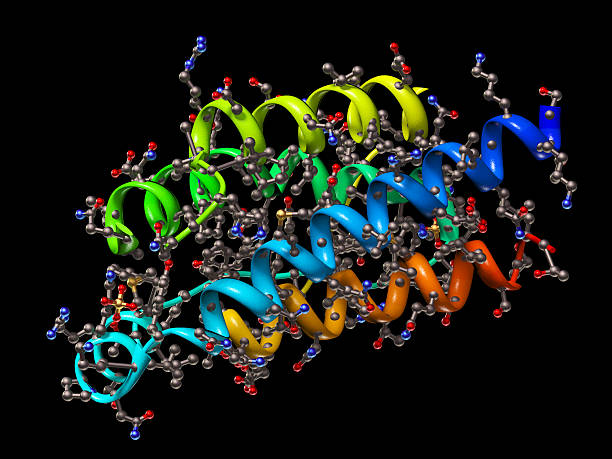The field of recombinant DNA technology has revolutionized the production of proteins in the laboratory. DNA technology offers a new level of control over protein expression, allowing scientists to produce customized biomolecules with unprecedented precision and efficiency. One key application of this technology is recombinant protein production, which involves using genetically engineered organisms to churn out large quantities of complex molecules for use in research, medicine, and industry. In this article, we will explore the numerous benefits that come with producing recombinant proteins using DNA technology, including increased yields and purity levels compared to traditional methods, as well as enhanced customization capabilities and improved scalability.
Enhanced Purity and Quality of Recombinant Proteins
Recombinant proteins produced by DNA technology offer enhanced purity and quality compared to traditional protein production methods. With control over the genetic sequence, scientists can eliminate impurities in the final product that may be present in natural or traditional recombinant proteins. This level of purification allows for improved specificity and uniformity, leading to greater reproducibility of experimental results.Additionally, recombinant protein production via DNA technology ensures higher yields with lower batch-to-batch variability than other protein expression systems. By optimizing genetic modifications and growth conditions of organisms used for expression, researchers can yield large quantities of highly pure proteins consistently across experiments. In contrast, traditional protein isolation techniques often result in low yields due to complex purification steps required to achieve high purity levels.
Increased Yield and Scalability of Production
Increased yield and scalability of production are among the key advantages of using recombinant proteins produced by DNA technology. This method allows for the controlled expression of genes, resulting in high levels of protein output that can be easily scaled up to meet demands. The use of genetically engineered organisms also eliminates the need for costly purification processes, making it a more cost-effective option than traditional protein production methods.Furthermore, this increased yield and scalability can have significant implications for various fields such as medicine and industry where large quantities of complex molecules are required. Recombinant proteins produced via DNA technology offer researchers greater control over protein structure and function, allowing for precision in drug discovery and development. With these benefits, it’s no wonder that recombinant protein production is becoming increasingly popular in many different applications including biotechnology research, agriculture, food processing industries as well as pharmaceuticals manufacturing facilities around the world.
Customization of Recombinant Proteins for Specific Applications
Customization of recombinant proteins for specific applications is a valuable tool in the fields of research, medicine, and industry. Recombinant protein production involves generating modified versions of naturally occurring proteins to meet specific requirements. The process allows for precise modifications such as fusion tags and mutations that can enhance performance or simplify purification. DNA technology has made it possible to produce recombinant proteins with high yields, purity, and biological activity.
Customization of recombinant proteins offers vast potential in disease therapy, drug development, vaccines production among others. For instance, modification of antibodies produced by hybridoma cell lines using recombinant DNA expression systems facilitates optimization resulting in desirable pharmacological properties like improved stability profiles or enhanced specificity/sensitivity leading to targeted therapeutic effectiveness towards particular diseases such as cancers. Overall customization often leads to efficient non-native traits making them useful for industrial purposes due to their diverse ranges of functions including catalytic roles as enzymes which render them applicable across many sectors. Improved efficacies resulting from refined customizations allow for better understanding during research leading to breakthroughs thereby benefiting the society at large.
We will explore the pros and cons of social media todayenvironmentnews is a place where you can get Latest Worldwide News.
Improved Accessibility and Affordability of Recombinant Proteins
Improved accessibility and affordability of recombinant proteins have been a game-changer in research, medicine, and industry. Previously, obtaining these complex molecules was an arduous task involving isolating them from natural sources or synthesizing them chemically. DNA technology has made it possible to produce recombinant proteins in large quantities and at a lower cost than traditional methods.
The availability of inexpensive recombinant proteins has democratized access to these valuable tools for scientists globally. They can now easily obtain high-quality biomolecules that were previously out of reach due to their prohibitive prices and limited supply. This increased access is leading to more ground-breaking discoveries as researchers are able to explore new areas where protein expression was previously not feasible.
Moreover, the versatility of DNA technology allows for customization of protein production with unprecedented precision by choosing specific expression systems such as bacterial or yeast strains suited for different applications yielding higher quality output at reduced overall production costs making this tool indispensable in fast paced scientific discovery projects today.

